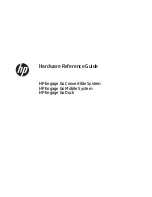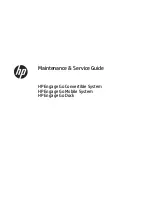
B-8
Falcon
®
DOS Portable Terminals
Options
The
/F
option causes
CHKDSK
to fix errors on the disk if any were found. The
errors that can be found are directory or FAT errors. If the
/F
is not specified
then
CHKDSK
acts as if it will fix the disk, but the corrections will not be
written out to the disk.
If errors are detected, a prompt will appear with a message similar to the
following:
15 lost allocation units found in 5 chains.
Convert lost chains to files?
Type
Y
for Yes, and each lost chain will be written to a file in the root directory
of the current default drive. Each file will have the name
filennnn.chk
.
nnnn
will be a sequential number. The first chain will be in
file000.chk
.
These files can be verified to see if they contain valuable information, and then
deleted if desired. Answering N for No to the above prompt,
CHKDSK
will still
make the corrections however the lost chains will not be saved to the disk.
The
/C
option allows
CHKDSK
to correct errors without user confirmation.
This option must be used along with the
/F
option for corrections to be made.
The
/V
option causes
CHKDSK
to display each path and file as it is processed.
If a file specification is specified, then
CHKDSK
displays all files matching the
specification that have noncontiguous data areas on the disk. Files that are
stored in noncontiguous areas, especially
.exe
files, have slower disk access
times. If
CHKDSK
reports a large number of files with this problem, a utility
program that optimizes the files and free space on the disk should be used.
After checking the disk,
CHKDSK
displays any error messages followed by a
report on the state of the disk that was checked. An example of the report is
shown below.
Volume ROM-DOS created June 1,1990 1:00a
Volume Serial Number is 190E-4AA2
362496 bytes total disk space
0 bytes in 1 hidden files
6144 bytes in 2 user files
356352 bytes available on disk
655360 bytes total memory
595360 bytes free
advuser.book Page 8 Friday, September 27, 2002 4:22 PM
















































